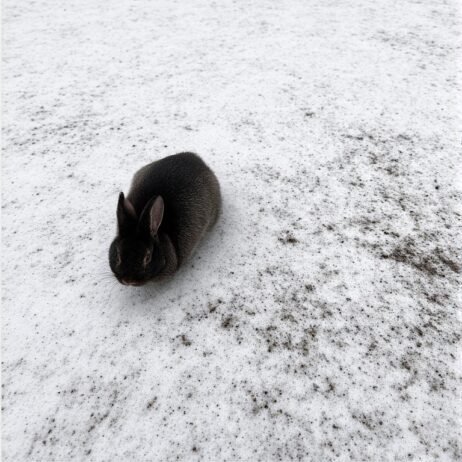How to Care for Rabbits in the Winter
- 4 February 2024
- BuyAPet Editorial Team
- Other Pets
Winter Rabbit Care
How to Care for Rabbits in the Winter
Cold, wet weather can be tough on outdoor rabbits. Here’s how to keep them warm, safe and healthy—without spending a fortune.
As dark winter days draw near, start planning for the animals that remain outside. Weather can be unpredictable, so prepare for cold snaps and icy nights. In the wild, rabbits live underground where it’s warmer and drier—our job is to mimic that protection.
Weatherproof the rabbit hutch
- Place the hutch away from draughts and damp, sheltered from wind on all sides.
- Raise the hutch off the ground to prevent cold rising and puddles creeping in.
- Seal gaps and cracks—use wood offcuts or sturdy cardboard as temporary fixes.
- Check and repair the roof promptly; once water gets in, it’s hard to dry.
- Use wind-breaks outside for extra protection, or move the hutch into a shed/garage (ensure ventilation).
- Varnish/paint the exterior for added weather resistance; consider a clip-on weather shield for the front.
How to keep rabbits warm in winter
- Provide cosy “bedrooms” inside the hutch (cardboard boxes, pet carriers, or a small hideaway).
- Add lots of soft, warm bedding and refresh frequently—it insulates against wind and damp.
- Solo rabbit? Consider a bonded companion for warmth and wellbeing.
Food and nutrition
- Encourage foraging in the hutch to keep them occupied and generate body heat via activity.
- Increase food slightly in cold weather to maintain weight and temperature; add fresh food daily and top up as needed.
- Wrap water bottles in bubble wrap or a sock to slow freezing; check and replace iced water promptly.
Good airflow still matters: weatherproofing shouldn’t block ventilation—stale, damp air can cause health issues.
Other things to consider
- Rabbits don’t hibernate; they still need daily exercise to keep joints healthy and minds stimulated.
- Keep access to the run where possible; weatherproof the run similarly to the hutch.
- Spend quality time—winter can be boring and lonely with fewer outdoor hours.
This guide is informational and not a substitute for professional veterinary advice. If you’re unsure about your rabbit’s health, contact your vet.
FAQs
Healthy adult rabbits cope well with cool temps if they’re dry, out of draughts, and have deep bedding. Freezing conditions need extra insulation and frequent water checks.
Lots of straw and hay with absorbent underlayers works well. Refresh frequently to stay dry and warm; avoid damp or soiled bedding.
Insulate bottles with bubble wrap or socks, use bottle covers, and check morning/evening. Bowls can freeze faster—replace ice promptly.
Moving to an unheated outbuilding or insulated area is often enough. If moving indoors, avoid sudden big temperature changes—acclimatise gradually.
Many rabbits need a modest increase to maintain weight. Provide unlimited hay, measured pellets per advice, and fresh veg daily. Monitor body condition weekly.
If you notice reduced appetite, lethargy, or breathing issues, contact your vet promptly.
Post Views: 6,663
